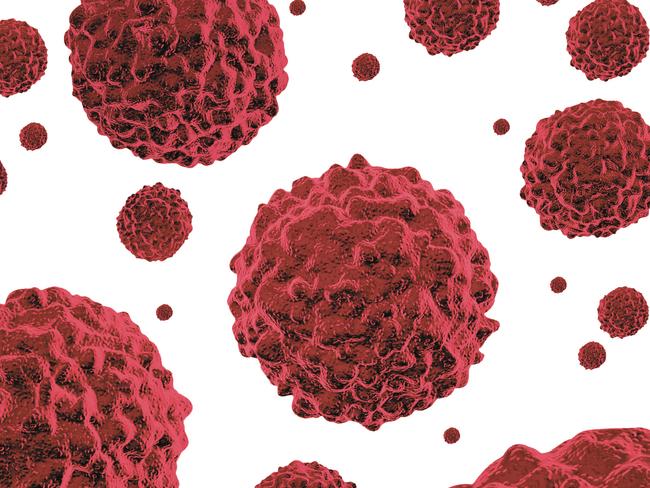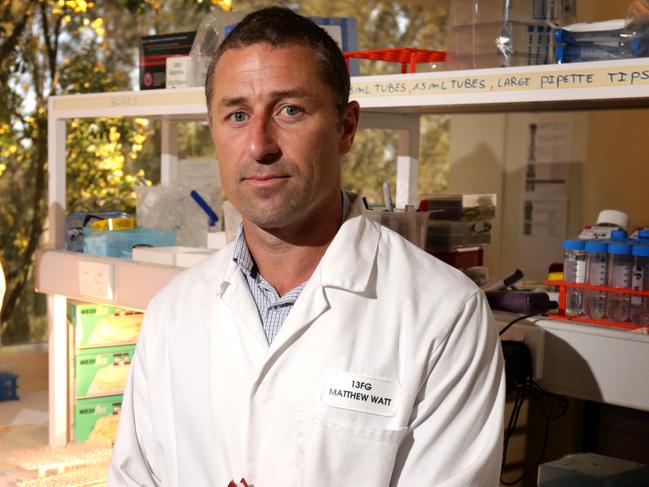Melbourne scientists have discovered that prostate cancer cells feed on fatty acids
A Melbourne-led breakthrough may allow doctors to starve prostate cancers of the “fuel” they need to grow, effectively halving the rate at which the deadly disease can spread.

News
Don't miss out on the headlines from News . Followed categories will be added to My News.
A Melbourne-led breakthrough may allow doctors to starve prostate cancers of the “fuel” they need to grow, effectively halving the rate at which the deadly disease can spread.
Having discovered that prostate cancer cells feed on fatty acids, the University of Melbourne and Monash University-led team are developing drugs to block those acids.
While other types of cancer rely on glucose to grow, a six-year international study revealed prostate cancer cells instead sought out and consumed fatty acids.
MELBOURNE RESEARCHERS UNLOCK KEY TO GROWING PROSTATE TUMOURS IN A LAB
CANCER TREATMENT: RARE LUNG CANCER DRUG ON THE PBS
CHILDREN AND TEEN CANCER PATIENTS FUTURE-PROOFING FERTILITY
Professor Matthew Watt of the University of Melbourne said the research identified the specific system within the cancer’s cells that it used to consume its fatty food — effectively giving doctors a way of putting the tumours on a diet.
“What we have found in this study is that prostate cancer is unique in that it is heavily reliant on fatty acids that are derived from the bloodstream to fuel their growth,” Prof Watt said.
“By blocking the key protein responsible for fatty acids uptake, which is called CD36, we were able to reduce cancer growth by up to 50 per cent.”
Prostate cancer is the second most common cancer in men, and more than 17,700 new cases were diagnosed in Australia last year.
After uncovering the link between prostate cancer cells and fatty acids in samples taken from human patients, the researchers were then able to genetically alter mice so they did not have the CD36 protein required to feed the cancer. The loss of CD36 cut the disease’s growth in half.

The study, published today in the Science Transitional Medicine journal, then saw the Melbourne team use an antibody to block CD36, showing drugs could be used to starve the cancer.
Although several existing drugs are already able to stop the body absorbing fatty acids, they are not suitable as a cancer treatment because they would also starve other vital processes which rely on the same fuel.
However, Monash’s Prof Renea Taylor said her team was now turning to “smart chemistry” to refine the drugs to target only the prostate in the hope of offering a future treatment.
“Although we are not saying this is a cure for prostate cancer, we can see there are some great advantages to a therapeutic that can slow the growth of the cancer,” she said.
“The first is to slow the progression for the patient so the oncologist have more time to come back with more effective therapy. This would be a combination therapy — we feel the cancer is going to be more vulnerable if we are slowing its growth with metabolic therapies. A combination approach might also allow us to use lower doses or current treatments and reduce the impact on the patient as well as prolonging survival.”


